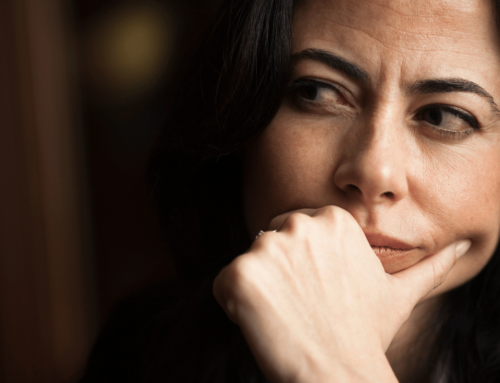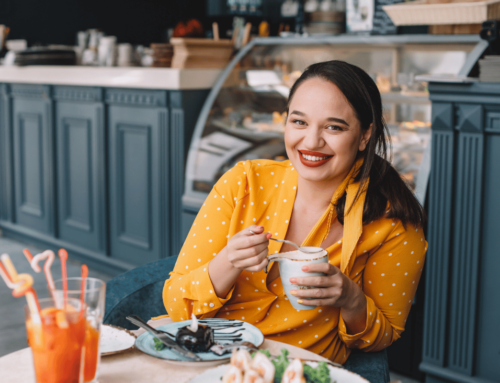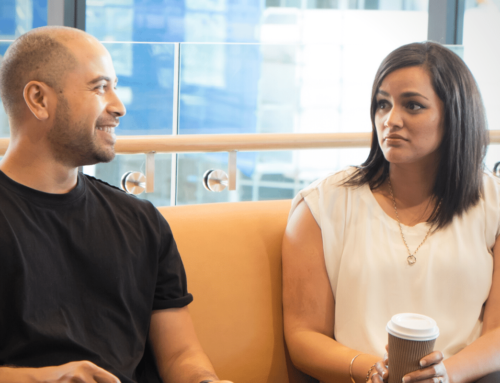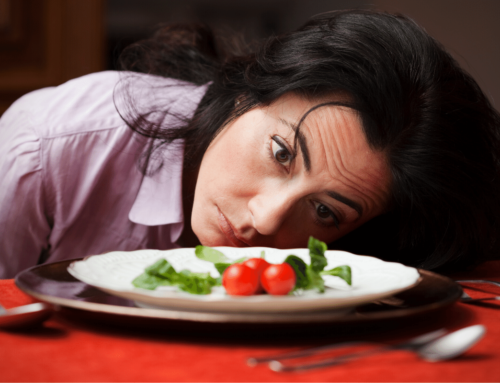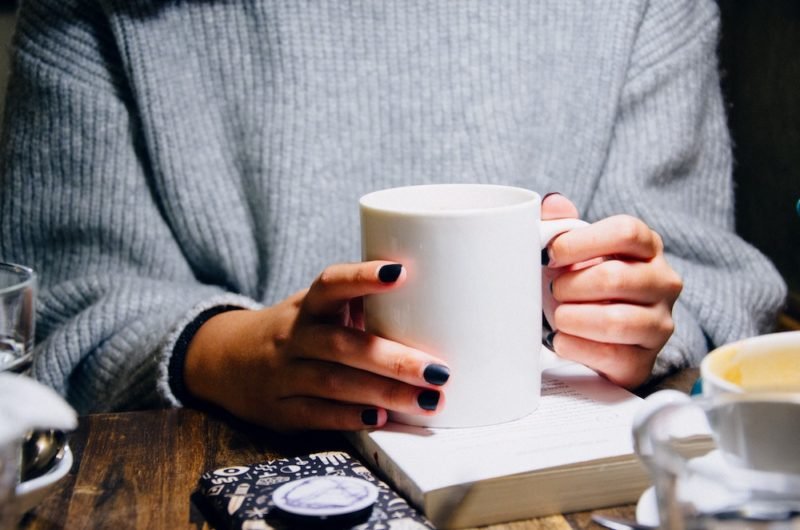
We need to eat, I don’t think anyone would dispute that. We can survive a few minutes without oxygen, a few days without water, and a few weeks without food, but those would not be happy weeks, and eventually, we would, yes, die. In spite of the fact that food is a life-sustaining substance, a lot of people experience a lot of guilt when they participate in this vital act. That guilt is a major obstacle to mindful eating.
By definition, guilt is an emotion that you experience when you feel that you have violated a moral standard. Not surprisingly, feelings of guilt while eating are more common when what we are eating has crossed some boundary that we’ve set for ourselves. Maybe we feel like we’re eating “too much,” or we’re eating the “wrong” kinds of foods. In other words, we’ve called the food police on ourselves.
It’s true that some foods help move you toward better health, while other foods do not. That’s an objective fact, with no moral implications. It’s one thing to feel guilty because you intentionally ran over someone with your car or you cheated on a test. It’s quite another to feel guilty because you ate a cookie. Eating a cookie doesn’t make you “bad.” Eating broccoli doesn’t make you “good.”
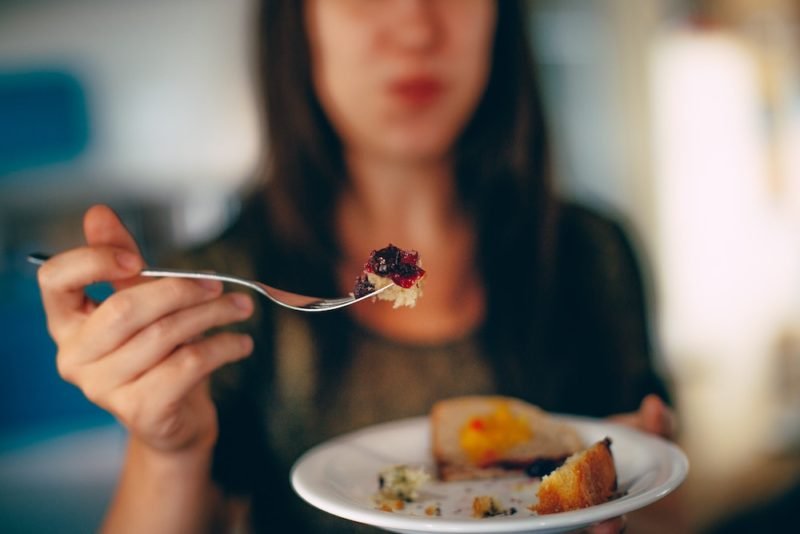
Guilt and pleasure, a tangled web
Do you tend to think of certain foods as “guilt-free,” while others are a “guilty pleasure”? Increasingly, I’m seeing clients who feel guilt when they find food pleasurable. And when I write about the idea that food is supposed to be pleasurable before, I always get a few emails from readers who are palpably upset with me for saying that, arguing that food is supposed to be fuel—period—and that to view food as pleasure at all is a gateway to food addiction.
If you’re inclined to feel food guilt, anything could be a trigger, from ordering salad dressing on your salad instead of on the side to saying “yes” to cake at the office birthday celebration to going on an all-out eating binge.
Obviously, food is fuel for your body, and filling your tank with the quantity and quality of food your body needs will help you operate at your best—“running on fumes” or regularly filling up with foods that are low on nutrition will leave you feeling lackluster. But food is also pleasure. If nothing else, this is true from a pure neurobiology standpoint—our brains are wired to register pleasure when we have experiences that we need to repeat in order to survive. If food didn’t provide pleasure, we wouldn’t exist today, because our caveman ancestors would have little motivation to put in the required effort needed to hunt a woolly mammoth and sleuth out roots and berries that weren’t poisonous.

Why guilt backfires
Theoretically, guilt has the potential to catalyze us into positive action, helping us stay on track with our nutrition goals, but more often than not it paralyzes us. This is especially true when guilt is accompanied by shame, as it often is. Research shows that harsh self-criticism about food or body contributes to disordered eating patterns and poor body image, whereas self-compassion has the opposite effect. A 2013 study found that people who associate chocolate cake with guilt instead of celebration were more likely to have unhealthier eating behaviors and less intention to eat healthy in the future.
What happens when you feel guilty about eating something that you’ve decided isn’t healthy? You feel bad about yourself. Let’s face it, guilt is not an emotion that makes you feel good. If you tend to be rigid with your diet, guilt may make you more restrictive with your food to compensate for your perceived lapse. If you tend to eat for emotional reasons—as many people do—guilt may make you feel even worse, leading you to reach for more food in an attempt to self-soothe, leading to more guilt. It’s a cycle that feeds upon itself. Guilt over a perceived food transgression can also simply lead to a “heck with it all” attitude because the damage has already been done.
Plus, we tend to not like thinking about things that make us feel guilty. So when we feel guilty about what we’re eating, we can easily slip into mindlessness. Both the guilt and the mindlessness ironically detract from whatever pleasure and satisfaction we might feel.
“Unless you killed the chef, there is no morality or guilt in what you eat.” ~ Evelyn Tribole, MS, RDN, co-author of “Intuitive Eating”

Finding balance
No one food makes you healthy or unhealthy. It’s about how the multiple food choices you make every day add up. If you regularly eat in a way that is not supporting your health goals, despite your best intentions, there’s likely a reason. Let’s say that you’re having a hard time stopping snacking in the evening between dinner and bedtime—when you’re not even hungry. Instead of succumbing to guilt, try being curious. Ask yourself, “What’s really going on, right now, in this moment?”
Are you bored or tired? Are you stressed or angry? Are you sad or lonely? All of those feelings are legitimate and worthy of attention, but food is at best a Band-Aid for what’s really eating you.
A balanced, varied, nutritious diet allows for both pleasure and health—a rigid, restrictive diet does not. Most people find a variety of foods pleasurable, and some of those foods are going to be more nutritious. What makes a food pleasurable? Taste, yes, but also temperature, texture and substance. It’s why you might prefer a cool, crisp salad in the summer, but a warm, filling vegetable soup in the winter. But denying yourself favorite foods that you feel are lacking in nutrition can lead to reactionary overeating when you do eat one of these “forbidden” foods. And odds are you’ll wolf it down with a side helping of guilt, erasing the very pleasure you hoped to find.
It can be hard to let go of food guilt. But it’s far worse to beat yourself up after eating a cookie than it is to eat that cookie mindfully, savor every morsel, and think, “Yum.” That kind of mindset may even help you be satisfied with one cookie rather than feeling like you want to devour a whole dozen.
Carrie Dennett, MPH, RDN, is a Pacific Northwest-based registered dietitian nutritionist, freelance writer, intuitive eating counselor, author, and speaker. Her superpowers include busting nutrition myths and empowering women to feel better in their bodies and make food choices that support pleasure, nutrition and health. This post is for informational purposes only and does not constitute individualized nutrition or medical advice.
Seeking 1-on-1 nutrition counseling? Carrie offers a 6-month Food & Body program (intuitive eating, body image, mindfulness, self-compassion) and a 4-month IBS management program (low-FODMAP diet coaching with an emphasis on increasing food freedom). Visit the links to learn more and book a free intro call to see if the program is a good fit, and if we’re a good fit!
 Print This Post
Print This Post

